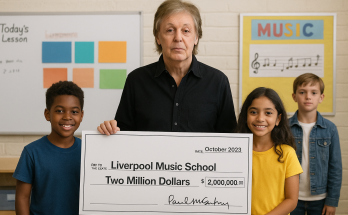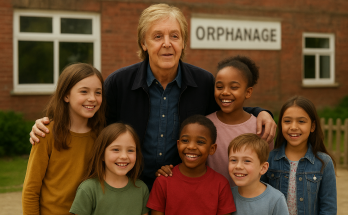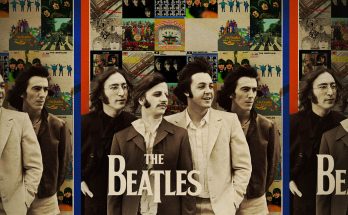Paul McCartney, one of the most iconic figures in the music world, is often recognized for his legendary career with The Beatles and his extensive solo work. However, it’s not only his music that has left a lasting impact; his actions in times of need also showcase the depth of his character and his commitment to helping others. Recently, McCartney became involved in disaster relief efforts, but unlike many celebrities, he didn’t seek attention or the limelight for his contributions.
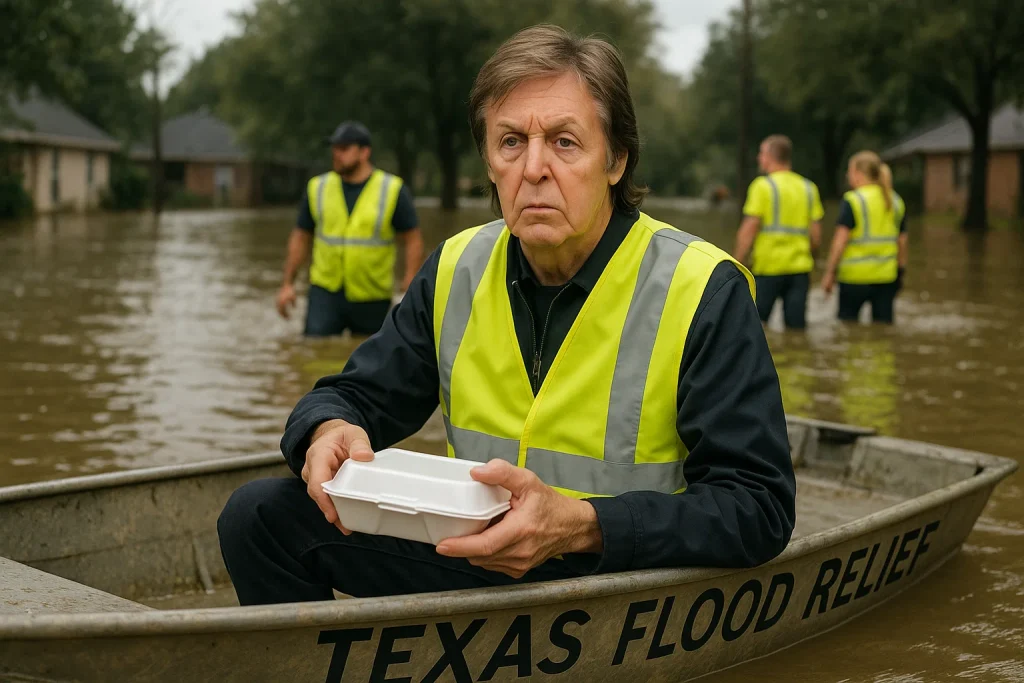
Reports indicate that when he arrived at a local shelter to offer his assistance, McCartney was heard telling shelter staff, “I didn’t come here as a celebrity. I came here as a neighbor. As a father. As someone who couldn’t just watch anymore.” This simple but profound statement encapsulates the humility and genuine care that defined his actions. McCartney’s priority was not to promote himself but to offer real help to those affected by a disaster.
In the 72 hours leading up to his visit, McCartney quietly organized and contributed donations, using his own money and local partnerships to gather essential supplies for those in need. His generosity included purchasing necessary items and collaborating with local organizations to ensure the relief effort was well-organized and impactful. This effort was a testament to his dedication to not just providing material aid but also taking personal responsibility to make a difference.


What stands out the most about McCartney’s contributions, however, is the way he went about it. Unlike many public figures who utilize their celebrity status to gain attention or push their charitable actions into the spotlight, McCartney took a far more humble approach. There were no press conferences, no photographers following his every move, and no cameras capturing his every act of kindness. In fact, most people only learned about his involvement after volunteers at the shelter posted a photo of him unloading boxes in jeans, a soaked hoodie, and with an expression of deep sorrow on his face. His heartbroken look was a powerful visual reminder of how deeply moved he was by the suffering he witnessed.

This image of Paul McCartney, often associated with fame and success, doing something as simple as unloading supplies, is a striking contrast to the usual image of a celebrity. It serves as a reminder that behind the persona of the famous musician, there is a man with genuine compassion, deeply affected by the pain of others. His actions proved that true generosity doesn’t require fanfare or recognition; it requires a willingness to help, even when no one is watching.
The public only became aware of McCartney’s quiet generosity after the image circulated on social media. In the photo, McCartney looks nothing like the larger-than-life musician the world knows. His jeans are soaked from the rain, his hoodie is dripping wet, and his face clearly reflects the emotional weight of the situation. He appears not as a rock star, but as a man who cares deeply for his fellow human beings. His heartache was evident in the photo, reminding all who saw it that there is no greater power than compassion for others.
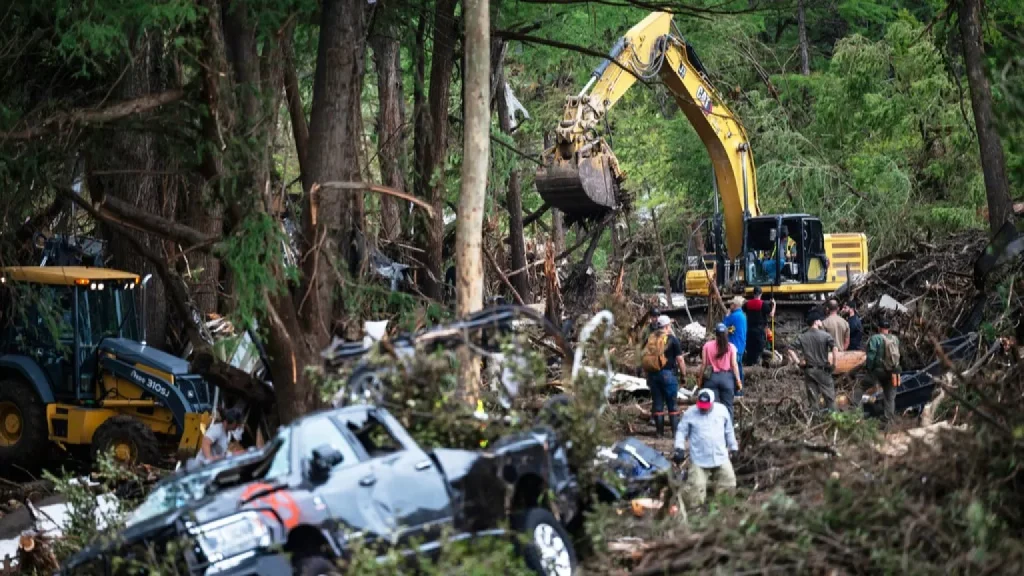
McCartney’s decision to assist in this way speaks volumes about his character. In a world that often glorifies public acts of charity and places the spotlight on individuals’ donations, McCartney’s choice to work quietly and without seeking attention stands as a true example of selflessness. His actions emphasize that charity isn’t about recognition—it’s about making a real difference, no matter how big or small the gesture.
In times of crisis, it is often those who do not seek the spotlight who leave the most lasting impact. Paul McCartney’s approach to disaster relief shows that even the most well-known figures can make a meaningful difference without drawing attention to themselves. It is a reminder that kindness and empathy are universal traits, and true generosity comes from the heart, not the cameras.
In a world where celebrity culture often leads to self-promotion, McCartney’s example reminds us that sometimes the most profound contributions are made in the quietest of moments. His actions during this crisis, done without expectation of praise or recognition, show that being there for others, as a neighbor, as a father, as someone who truly cares, is the most important thing. And in the end, that is what truly matters.
